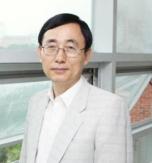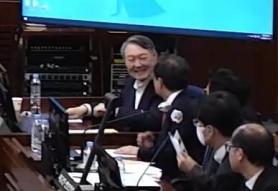
[This article was contributed by Arthur I. Cyr, author of "After the Cold War -- American Foreign Policy, Europe and Asia" (NYU Press and Palgrave/Macmillan). He has taught at the Universities of Chicago and Illinois, Northwestern University, and Carthage College (Clausen Distinguished Professor).]
KENOSHA -- Over the weekend, Lai Ching-te, also known as William Lai, was elected President of Taiwan. He succeeds President Tsai Ing-wen, who served two terms and is the first woman to hold this top government position.
This result continues significant political complications with mainland China. The Democratic Progressive Party (DPP) has won three presidential elections in a row. The party is formally committed to independence from China.
However, Mr. Lai’s vote margin was reduced and the DPP also lost their legislative majority. The conservative Kuomintang (KMT) gained the most seats. This could be a diplomatic plus given their more pragmatic approach to Beijing.
Beijing is not happy about continued DPP control of the executive office, but greater KMT presence in the legislature provides opportunities for cultivation. China media have been relatively restrained about this election result compared to past extreme rhetoric.
Both sides likely will continue to avoid armed conflict. The first DPP government from 2000 to 2008 was able to finesse the political challenges with Beijing. Today, economic concerns remain more important than ideological purity for China’s struggling communist leadership.
In 2016 the Taipei Economic and Cultural Office (TECO) in Chicago, which represents Taiwan, hosted a remarkably instructive, insightful seminar on the implications of the return of the DPP to governing power. There was general agreement President Tsai had effectively endorsed the framework of cooperation initiated by Beijing and Taipei in 1992. This remains true despite her 2019 speech that emphasized independence.
One seminar participant suggested emphasizing the Chinese people globally, a primary source of overseas investment. This was a remarkably shrewd, insightful suggestion, still worth consideration by government leaders of Taiwan.
The two sides share a bitter legacy of battle and blood. In 1949, Nationalist forces of General Chiang Kai-shek evacuated to Taiwan. Mao Zedong’s armies controlled the mainland of China. Except for the island territory, communist revolution was complete.
The Korean War of 1950~1953 made the Cold War global, with China and the United States direct combatants. U.S. commitment to Taiwan security became explicit.
The foundation of cooperation has been built steadily if slowly over time. Pragmatism characterizes Taiwan’s approach to mainland China. Following formal U.S. diplomatic recognition of Beijing in 1978, a consequence of President Richard Nixon’s 1972 visit, Taipei immediately launched a comprehensive non-confrontational strategic response.
In November 2008, agreement was reached on far-reaching trade accords, including direct shipping, expansion of weekly passenger flights from 36 to 108, and introduction of up to 60 cargo flights per month.
In 2010, the bilateral Economic Cooperation Framework Agreement (ECFA) was concluded. This has been a major triumph for then-President Ma Ying-jeou. His election as chief executive in 2008 and 2012 greatly furthered rapprochement with Beijing.
In February 2014, senior representatives of the island and the mainland agreed to exchange representative offices. Face-to-face negotiations were led by Vice Foreign Minister Zhang Zhijun of China, and Taiwan Mainland Affairs Minister Wang Yu-chi. Unfortunately, in 2016 Beijing suspended direct communications.
Taiwan has become essential investor for the economic revolution on the mainland. Commercially successful, generally well-educated overseas Chinese in turn are a vital source of capital for the mainland. Expatriate Chinese also vote in Taiwan elections.
Presidents Tsai and now Lai represent equality, fairness and progress. Open competitive markets undercut rigidities of tradition and ideology. The ECFA framework is now so strong that a return to earlier hostility across the Taiwan Strait is unlikely.
Taiwan without doubt has now effectively embraced representative democracy.
Copyright ⓒ Aju Press All rights reserved.




